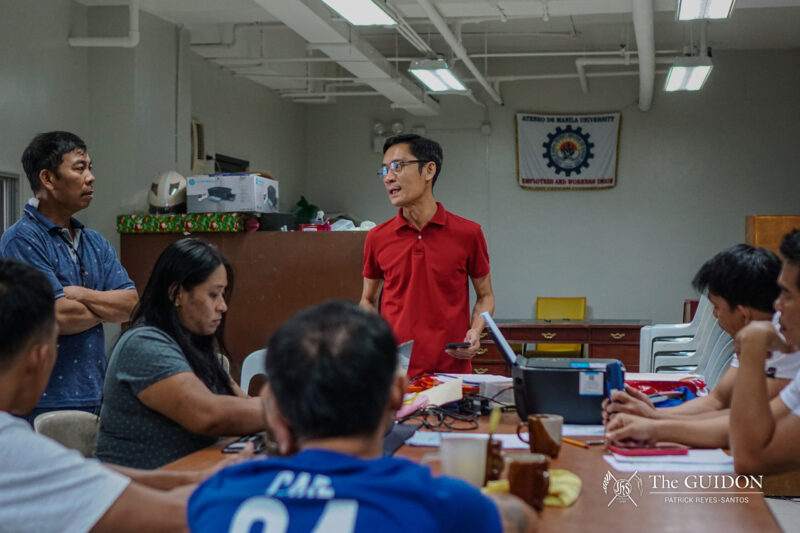THE PROPOSED amendments in the 2005 Constitution of the Undergraduate Students of the Ateneo de Manila Loyola Schools include a major change in the overall structure of the Sanggunian.
During the Sanggunian Central Board (CB) meeting held on January 10, members of the CB raised varying concerns as they discussed the proposed amendments in Articles VI and VII of the Constitution.
Article VI pertains to the composition of the Sanggunian while Article VII is about the CB.
According to Constitutional Amendment Process (CAP) Head Nick Lucero, the new structure emerges as a “response” to suggestions and discussions of previous administrations.
“While the current structure is still functional, a close analysis of how the structure works today would show that the way the Sanggunian functions today is different from the way it used to,” he said.
The proposed constitutional change in Article VI, Section 1 includes the addition of a Sanggunian Legislative Board (LB).
Meanwhile, in place of the School Board (SB), the amendment will add the Executive Board (EB) and Batch Coordinating Assemblies in the Sanggunian.
At present, the Sanggunian is composed of all members of the following: The CB, the School Boards of the School of Humanities, the School of Science and Engineering, the School of Social Sciences and the John Gokongwei School of Management, the Student Judicial Court, the Commission on Elections, the Sectoral Councils and the Sanggunian’s Special Units.
In addition, the amendment for Article VI, Section 2(a) indicates the composition of the new top five Sanggunian officers. The seat of the vice president will be divided into the positions of vice president for Internal Affairs and the vice president for External Affairs.
Together with the top five officers, the school chairpersons, the chairpersons of the LB Standing Committees and the Sectoral Representatives are proposed to make up the CB.
However, the CB will remain to be the “highest college-wide governing body of the Loyola Schools students.” The CB will be in charge of the execution of general and specific policies, programs and projects of the Sanggunian.
Meanwhile, the LB, as a policy-making body, will be in charge of formulating resolutions.
Power in the CB
With this proposed structure, the CB will have the power not to choose to implement the mandate of a resolution from the LB. The CB will also have the power to approve or halt project proposals coming from the EB.
However, Sanggunian President Dan Remo said during the CB meeting that while the modifications are efficient, they are also “dangerous.”
Remo said he fears the proposed system might make the Sanggunian’s processes “less democratic.”
“By allowing a body to have a role of approving projects, you essentially place the burden of control of projects and budget into one body,” he said.
Lucero counter argued that a delicate system of checks and balances is in place since the school and LB Standing Committees chairpersons will be part of the CB.
However, John Gokongwei School of Management Chairperson JV Poe still expressed his concern that the proposed structure may affect the autonomy of the SBs.
As a reply, Lucero said that in Sanggunian tradition, previous CBs implement project approvals. It was just in recent years that the SB started to have autonomy with regard to their projects.
Centralization and consistency
Lucero explained that the point of the amendment is to “centralize the projects” being implemented by the Sanggunian.
Lucero further said that the goal of the amendment is not to limit the autonomy of the SBs but to refocus the autonomy towards a direction “that will allow [the student government] to be called as one Sanggunian.”
Lucero added that with the proposed amendment, projects will be scrutinized not just based on the budget allocation but also on their underlying principles.
Meanwhile, questions were also raised as regards whether or not the Sanggunian president should have a say in the policymaking of the LB, since the administration and other organizations approach the president regarding certain concerns.
The said amendments of Articles VI and VII are still under the deliberation of the CB. The CAP is currently conducting additional meetings to further discuss the matter.






